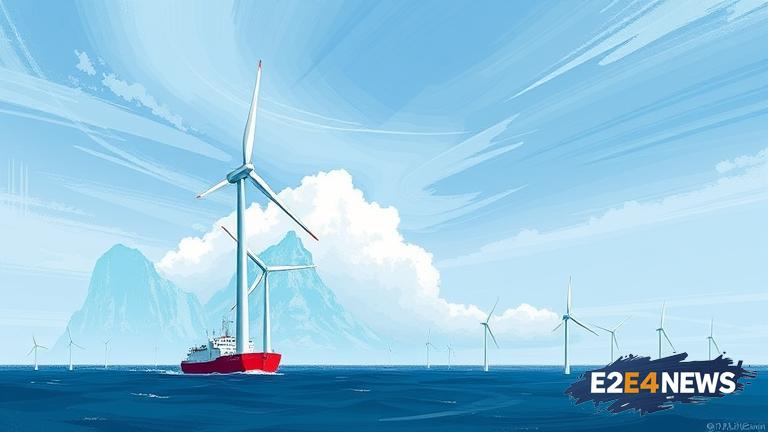In a significant development, a consortium led by Mitsubishi Corporation has decided to withdraw from three offshore wind projects in Japan. The decision comes as a result of various regulatory and technical challenges that the group faced during the development phase. The projects, which were initially expected to generate a significant amount of renewable energy, have been plagued by delays and uncertainties. The Japanese government had set ambitious targets for offshore wind energy, aiming to generate 10 gigawatts of power by 2030. However, the development of these projects has been slow due to various reasons, including regulatory hurdles and technical difficulties. The Mitsubishi-led group had invested heavily in the projects, but the challenges proved to be insurmountable. The withdrawal of the consortium is expected to have a significant impact on Japan’s offshore wind industry, which is still in its nascent stages. The country has been trying to reduce its dependence on fossil fuels and increase its use of renewable energy sources. The offshore wind sector was seen as a key area of growth, but the withdrawal of the Mitsubishi-led group has raised concerns about the viability of these projects. The Japanese government has been trying to streamline the regulatory process and provide incentives to developers, but more needs to be done to attract investment in the sector. The consortium’s decision to withdraw from the projects is a setback for the government’s plans to promote offshore wind energy. The projects were expected to create jobs and stimulate local economies, but the withdrawal of the consortium has put these plans in jeopardy. The Mitsubishi-led group’s decision is also expected to have a ripple effect on the global offshore wind industry, which is closely watching the developments in Japan. The country’s offshore wind market is considered to be one of the most promising in Asia, and the withdrawal of the consortium has raised concerns about the future of the industry. Despite the challenges, the Japanese government remains committed to promoting offshore wind energy and is expected to announce new policies and incentives to attract investment in the sector. The government has also been in talks with other developers to take over the projects, but it remains to be seen whether these efforts will be successful. The withdrawal of the Mitsubishi-led group has highlighted the need for a more streamlined regulatory process and greater support for developers. The Japanese government needs to take a more proactive approach to promoting offshore wind energy and addressing the challenges faced by developers. The country’s offshore wind industry has the potential to create jobs, stimulate local economies, and reduce greenhouse gas emissions, but more needs to be done to realize this potential. The Mitsubishi-led group’s decision to withdraw from the projects is a wake-up call for the government and the industry, and it remains to be seen how they will respond to this challenge. The future of Japan’s offshore wind industry hangs in the balance, and the government needs to take swift action to restore confidence in the sector. The country’s renewable energy targets are ambitious, and the offshore wind sector is critical to achieving these goals. The withdrawal of the Mitsubishi-led group has raised concerns about the viability of these targets, and the government needs to take a more proactive approach to promoting offshore wind energy. The Japanese government has been trying to promote offshore wind energy as part of its efforts to reduce greenhouse gas emissions and mitigate the impacts of climate change. The country has set a target of reducing its greenhouse gas emissions by 80% by 2050, and offshore wind energy is seen as a key area of growth. However, the withdrawal of the Mitsubishi-led group has raised concerns about the country’s ability to achieve this target. The government needs to take a more proactive approach to promoting offshore wind energy and addressing the challenges faced by developers. The country’s offshore wind industry has the potential to create jobs, stimulate local economies, and reduce greenhouse gas emissions, but more needs to be done to realize this potential.
